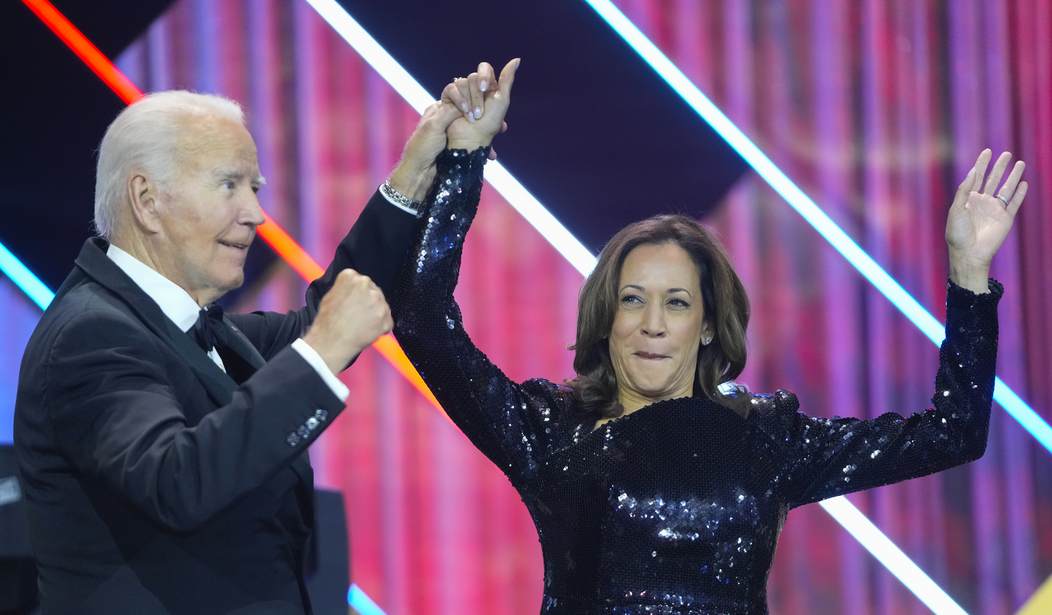Old and busted: "You don't hate the media enough!" New hotness: You don't admit to hating the media enough! Or, for that matter, the government, and that's not all.
Axios reported the results of a new survey from Populace, a think tank in Massachusetts, that took a fresh look at trust in national institutions, including the media and the government. We have plenty of longitudinal data on these questions, most notably from Gallup, which has results stretching back decades on institutional trust. Two months ago, Gallup reported on the sorry state of the erosion of trust:
Aside from the police, small business (68%) and the military (61%) are the only other institutions in the June 3-23 poll that garner majority-level confidence from Americans. Small business and the military are commonly seen at the top of the confidence list, with one of the two leading the list each year since 1989 -- the military 30 times and small business six times.
Meanwhile, between 26% and 36% of U.S. adults express at least quite a lot of confidence in nine institutions -- the medical system, higher education, the church or organized religion, the U.S. Supreme Court, public schools, organized labor, banks, large technology companies, and the presidency. Although these levels of high confidence are well below the majority level, all generate at least quite a lot of confidence among Americans.
Five institutions have the confidence of less than one-quarter of U.S. adults -- the criminal justice system, newspapers, big business, television news and Congress. Confidence in the criminal justice system has edged up four points since last year, while confidence in the other institutions is unchanged or statistically similar. Of these, television news and Congress have the unwelcome distinction of earning low or no trust from a majority of Americans.
Now, Gallup made clear that these numbers didn't speak well of these institutions. The average level of confidence in the aggregate was only 28%, well below levels seen even a decade ago.
But it turns out that actual confidence is a lot lower when people admit to their private consideration of these institutions. Six in ten Americans admit to "self-silencing" behaviors even when polled on these subjects, and especially when engaging these topics in social settings. Populace constructed their study to get around that self-silencing impulse, and ... hoo boy.
- 36% of Democrats and 14% of Republicans say they trust government to tell the truth, but just 5% and 2% agree with this statement privately.
- 42% of Democrats and 16% of Republicans say they trust the media to tell the truth. Just 9% and 3% really believe this.
- Perceptions of fairness are also critically low, says Todd Rose, CEO of Populace. 37% of Americans say the country is mostly fair publicly. Just 7% privately think so.
Now, I know what many readers may be thinking: Who are the 3% of Republicans that still trust the media? That question leaped to mind for me as well. But all kidding aside, Rose correctly warns that this level of erosion in institutions are what one might expect in a pre-revolutionary political environment. It's incredibly dangerous, and it offers an explanation of why politics have become a blood sport, or at least one explanation.
Not all of the news is bad, however, at least from an institutional standpoint:
- Defunding the police — a movement that was politically popular among younger Americans on the left — is not as popular as it might seem, the poll shows. 28% of Gen Zers and 27% of Democrats say they support the movement, but just 2% and 3% privately agree. That's not far from the 1% of Boomers and 1% of Republicans who privately say they support the movement.
Worth noting: Gallup got closer to the reality in its polling. Only 17% expressed very little or no confidence in police in this year's survey, well below Populace's estimation of publicly expressed no-confidence in police. Only 1% said none at all, in fact.
This looks like a symptom of another problem -- politics as fashion. Why would people declare support for a radical idea like "defund the police" if they didn't actually support it? It's likely because of social pressures in their immediate environments, which is particularly an issue for young adults in higher education and in entry levels of woke-drenched employers. They put "ACAB" on their social-media streams as virtue signals, but would dial 911 in a heartbeat if they perceived any kind of threat. They don't really want the police defunded and themselves left vulnerable to predators; they just want to look cool.
Of course, social pressure comes into play for "self-silencing" behaviors too. We assume that we will get punished for speaking our minds, sometimes even with pollsters who sometimes turn out to be advocates instead. That kind of guardedness makes us less honest with ourselves, let alone with others, and has to create a level of cognitive dissonance that also explains why we might feel skepticism about public institutions, too.
Perhaps we just need to get a little more courageous about expressing our true feelings. But it does point out that the efforts of the Left to infringe on speech via the Big Tech/government "misinformation" censorship complex and even the Kids Online Safety Act is doing active harm to honest political engagement. It has turned us into neurotics, and we're probably not far from becoming hopelessly unable to properly discuss and debate real issues.
One big result of that trend is the Kamala Harris campaign. It wants to skate through an entire election cycle without discussing anything of substance, except to scold people who think Donald Trump delivered better results than Joe Biden and Harris have. And that will only accelerate the erosion of trust and investment in our institutions.








Join the conversation as a VIP Member